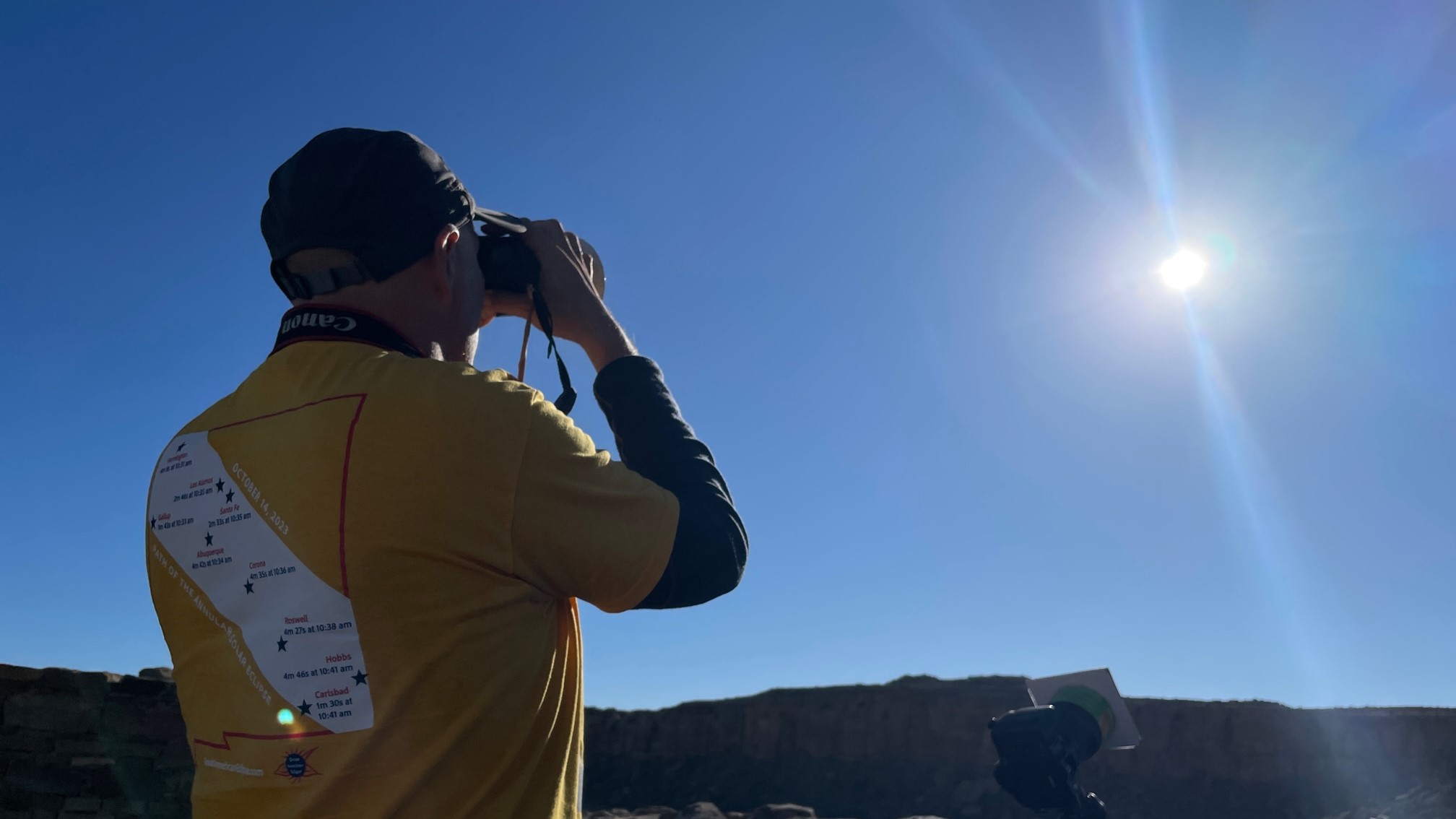
Anyone who has been keeping up with our solar eclipse content in the lead-up to April 8's total solar eclipse will undoubtedly be familiar with the name Jamie Carter. After all, he's our 'go-to' eclipse expert and valued contributor to Space.com and has written over 35 total solar eclipse pieces in the last few months for Space.com alone.
We're thrilled to announce that his hard work for us and other news outlets, such as Forbes, has paid off with Carter being awarded the Solar Physics Division (SPD) Popular Media Award 2023.
On April 11, the SPD Popular Media Awards Committee announced the awards for 2023, one journalist and one scientist award were made.
Carter won the journalist award "For the corpus of work preparing the public for the 2024 eclipse. Numerous articles on Forbes and Space.com throughout 2023." according to the announcement. The scientist award went to Sarah Gibson, Mark Miesch, Amy Davenport, Damon Burke, Daniel Zietlow for their "My Corona" (song and video)
Related: Top total solar eclipses to look out for over the next decade
We spoke to Jamie about what it felt like to win the award and asked him about his plans for future eclipse content.
Were you surprised to find out you've won?
Absolutely! When I look back at the articles I've written about total solar eclipses it's almost embarrassing because I cannot even begin to count them. I think it's about 400 in the past year, but it might be more. By mid-2023, eclipses went from being something I wrote about occasionally to a full-time job. By March this year, I had interviewed about 40 scientists and events organizers and was working about 14 hours a day writing exclusively about the U.S. eclipse. It was exhausting, but fun to see the results.
Many millions of people in the U.S. and around the world read my articles and, hopefully, went to see the eclipse. I had a few messages from people telling me that it was my articles that made them decide to go see their first total solar eclipse, which made me very happy.
Why do solar eclipses make you passionate enough to write so many articles on them?
I think of total solar eclipses as a hand you can take that can lead you around the world on great adventures.
By pursuing something in the sky rather than on the ground, you travel to places you would never have thought of, mostly avoiding tourist traps. You see the world as nature and the cosmos intended, one moon shadow at a time. It's travel of the most authentic kind.
As well as being one of the most profound experiences in nature, total solar eclipses combine my interest in travel and astronomy. However, they're dynamic events that can be difficult to understand, with science, geography and meteorology all clashing head-on.
Most people know nothing about them because they occur so rarely in one place, which means I'm always careful to write about the basics. Surprisingly, most travel writers know nothing about total solar eclipses, so I am trying to fill that gap. My job is to distill complicated science into easy-to-understand, usable information while ignoring received wisdom and debunking myths and assumptions.
As the son of two geographers, I grew up surrounded by maps and we usually traveled off the beaten track. There's nothing I love more than looking at the map of an upcoming eclipse and making a plan to explore a part of the world I've never been to.
I've experienced eclipses from beaches in Australia and England, from a tennis court in Chile, and even from a ship off Antarctica.
As many eclipse chasers will tell you once they've seen several totalities, the thrill of seeing the sun's corona remains, but the draw of seeing new places is just as powerful.

What's next? Are you having a break or already preparing for future solar eclipses?
One of the results of April 8's total solar eclipse is a new cohort of people who want to see the next eclipse. As the editor of WhenIsTheNextEclipse.com, these are my people! There's such a thirst for information about upcoming eclipses that I'm already preparing articles and books on the next total solar eclipses in 2026 and 2027.
But I'm looking forward to summer when I can perhaps take a year off from writing about eclipses and work on something completely different — probably the 'major lunar standstill' coming up later this year.
When Is The Next Eclipse? A traveler's guide to total solar eclipses 2026-2034
Carter has also been busy creating a complete eclipse travel guide for the next 10 years of total solar eclipses, taking us through to 2034.
"The book is full of 'secret' experiences that only a complete eclipse and travel nerd like me could find!" Carter told Space.com
Inside you will find key information about the upcoming total solar eclipses designed to help you plan the perfect eclipse adventure.
The next total solar eclipse [in 2026] will give people a chance to see a "golden corona" sink into the Mediterranean Sea, followed by the Perseid meteor shower. Another in 2030 will throw Namibia's Skeleton Coast under the moon's shadow at just the right time of year for seeing the Milky Way after sunset.







